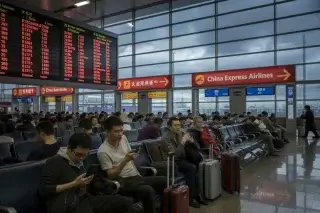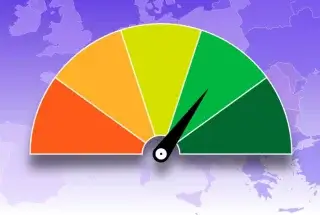Egypt’s Luxury Real Estate: Investment Opportunities and Risks

Photo: Unsplash
Egypt’s luxury real estate market is experiencing a surge of interest from Gulf investors, according to a survey by Knight Frank. The study included 264 high-net-worth individuals with combined assets exceeding $2.6 billion. Yet, experts note that Egypt still lacks sufficient high-end housing supply and continues to face significant risks.
Among wealthy respondents with assets above $1 million, about 60% of Emiratis and 40–45% of Saudis already own property in Egypt. Interest is also growing among ultra-high-net-worth investors (over $5 million in assets): 58% are considering acquisitions, but most prefer to wait for completed, ready-to-use properties. This reflects the cautious strategy of affluent buyers who only enter new markets after seeing real-world success stories and proven returns.
Tourism remains the main driver of investment interest. Over 51% of respondents said they plan to buy second homes or resort properties. For Gulf buyers, Egypt combines affordability and accessibility — thanks to more than 800 weekly flights between Egypt and Saudi Arabia — along with a rich cultural heritage and warm climate.
Knight Frank’s Faisal Durrani emphasized that foreign investment is vital for Egypt’s economy as the government works to stabilize inflation and stimulate long-term growth. He notes that there’s no overheating risk, as Gulf investors’ priorities differ from local homebuyers: affluent clients seek “luxury villas, marinas, golf courses, and coastal homes.” However, supply still lags far behind demand, and the shortage of completed premium projects limits market growth.
Most foreign investors avoid buying off-plan units, preferring finished properties priced from $2 million and above. Durrani stressed that developers must prove the resilience of Egypt’s property market by building world-class projects that can compete with Dubai, Riyadh, or Doha. Still, a potential global recession could temporarily cool investor enthusiasm.
Daily News Egypt reported that rising geopolitical tensions — particularly the Israel-Iran escalation in mid-2025 — have driven up energy costs and disrupted building material supplies. This has led to higher construction costs and longer project timelines.
Currency volatility also remains a key risk. According to Invest-Gate, the repeated devaluations of the Egyptian pound reduce long-term predictability and undermine investor confidence. Overlapping government initiatives and export-driven property programs add confusion to the regulatory environment.
Meanwhile, market transparency continues to be a concern. Reports highlight the persistence of fraud cases and frequent construction delays. Ainvest.com notes that Egypt’s business environment remains opaque, with deals often relying on personal connections and informal agreements — increasing transaction costs and deterring institutional capital.
In the first half of 2025, property prices surged by 20–30%, according to analysts. Inflation, higher construction costs, and speculative bookings have contributed to this spike — though many reservations don’t convert into actual purchases. Experts warn that the market may face a temporary correction in 2026.
According to Backyard.ae [leech=https://backyard.ae/real-estate-bubble-in-egypt-economic-insights-2025], the sharp rise in luxury housing prices, particularly along the North Coast, raises fears of overheating. Rapid development without parallel infrastructure expansion could lead to short-term oversupply.
Подсказки: Egypt, real estate, luxury, Gulf investors, Cairo, property market, investment, Knight Frank, economy, risks, inflation, currency, premium housing, North Coast, transparency








